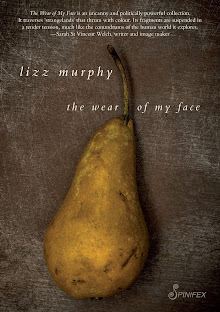THE
HUNTED AND THE HAUNTED
No animals were harmed in the writing of this article
The
first light whiskering from the vent. The first warbles from the gum trees. Time
for the hunt! Well maybe … let’s give it another hour.
You
hope to always have something simmering or simpering. Just waiting for you to
sit down in your antique writing room or under your burgeoning apple tree,
daffodils at your feet (oh sorry wrong season), puppies vying with your
computer for your lap. This is when the routines work well. All day writing
because you have found a sugar daddy/mammy (dream on). Or failing that writing
feet up on your desk because your employer upon discovering you are a poet, has
decided you should be sponsored this way (dream on). Or failing that, how about
two hours first thing in the morning even if it means getting up at cock’s crow
before all the babies awaken (not me – I dream on). Or two hours late evening
after the working day, the homeworks sorted and teens thinking about bed (still
dreaming). Or in the middle of the night, when everyone else is asleep
(dreaming on). Except for another poet somewhere and the possums playing tag on
the roof. Or just an hour in the car while the child or the spouse is playing
sport (dreams of extra playoffs and injury times). For many it’s a notebook
pulled out of the pocket or the shoulder bag at a bus stop or the traffic
lights or leaning on the trolley in the supermarket. If you do it …routinely
enough it works.
What
if nothing is simmering or simpering! That’s when you go on the hunt. You can’t
wait for something to happen to you or around you, to set you thinking and
feeling, then creating and writing. You salivate at the thought of it. As
someone once said as our local ‘real’ butcher carved the requested order in
front of him: ‘I can feel my canines growing.’ You go on road trips, stand on
the edge of cliffs, take a helicopter joyride, hang out in unseemly company
(sometimes other poets), slice bread without your safety gloves, apply for a
residency preferably in a country more turbulent than your own.
On the
way to the Calcutta Book Fair I sat beside a pastor returning to India to do
good works. He told me about the cleverness of elephants. How night after night
the hunters waited, guns at the ready (legal at the time!), for rogue elephants
to again raid the village they were helping. Only when they’d given up, slept
one night, did the elephants reappear. Silently they consumed everything
eatable including the straw roof above the hunters’ heads.
From
that chance meeting I gained a micro poem (the elephants that got away) and a
curiosity about the history of the Overland Telegraph and the Murray-Darling
Basin. I’d shared my flight with a descendant of Sir George Murray. Of course I’ve also found poems sipping
coffee in Civic or chatting to people at bus stops in places like Narrabundah
and the Yass Valley.
The
poem that happens to someone else can be a tough call. The hunt takes you to
the unsavouriness of the evening news, the daily papers, the internet. The
horror stories haunt you. Sometimes you do write poems about them. You even
have them published. You struggle with whether you have done the person or the
issue justice. You struggle with whether you should write them in the first
place. After all they are other people’s stories, and you, the clichéd vulture,
circling overhead.
Then
the public readings. You look at the faces. Everyone has their own story their
own struggle. They may have already seen the news too. You think you should
write more poems about the beauty of the environment, the good humouredness of
the human race. Brighten people’s day. You ask yourself what does it do writing
this poem, reading this poem? Sometimes you skip the poem about domestic
violence and read the silly one about bra advertising. Or the vegie burger poem
instead of the one about asylum seekers suffocating in the back of a truck, or
the mass killings or the FGM. No beating vulture wings. No new collective pain.
Something
doesn’t sit quite right. You are at pains with it. You turn to Susan Sontag’s Regarding
the Pain of Others (p.102, Penguin Books, 2003). ‘Let the atrocious images haunt us.’ Even the tokens
are vital. So - every effort, every
poem that even touches on the confronting image, the difficult subject. The
single disturbing line. The only disturbing poem read at an event.
In some
countries the poets are in prisons. Here, the
poet’s struggle is such a small one.
Ink
up. Go to the edge. Write. Publish. Read. Poets one and all.
--
This article was first published in the February 2013 issue of ACTWrite by the ACT Writers Centre, Canberra. Poems referenced are published in Six Hundred Dollars (PressPress), Two Lips Went Shopping (Spinifex Press) and Stop Your Cryin (Island Press).













No comments:
Post a Comment